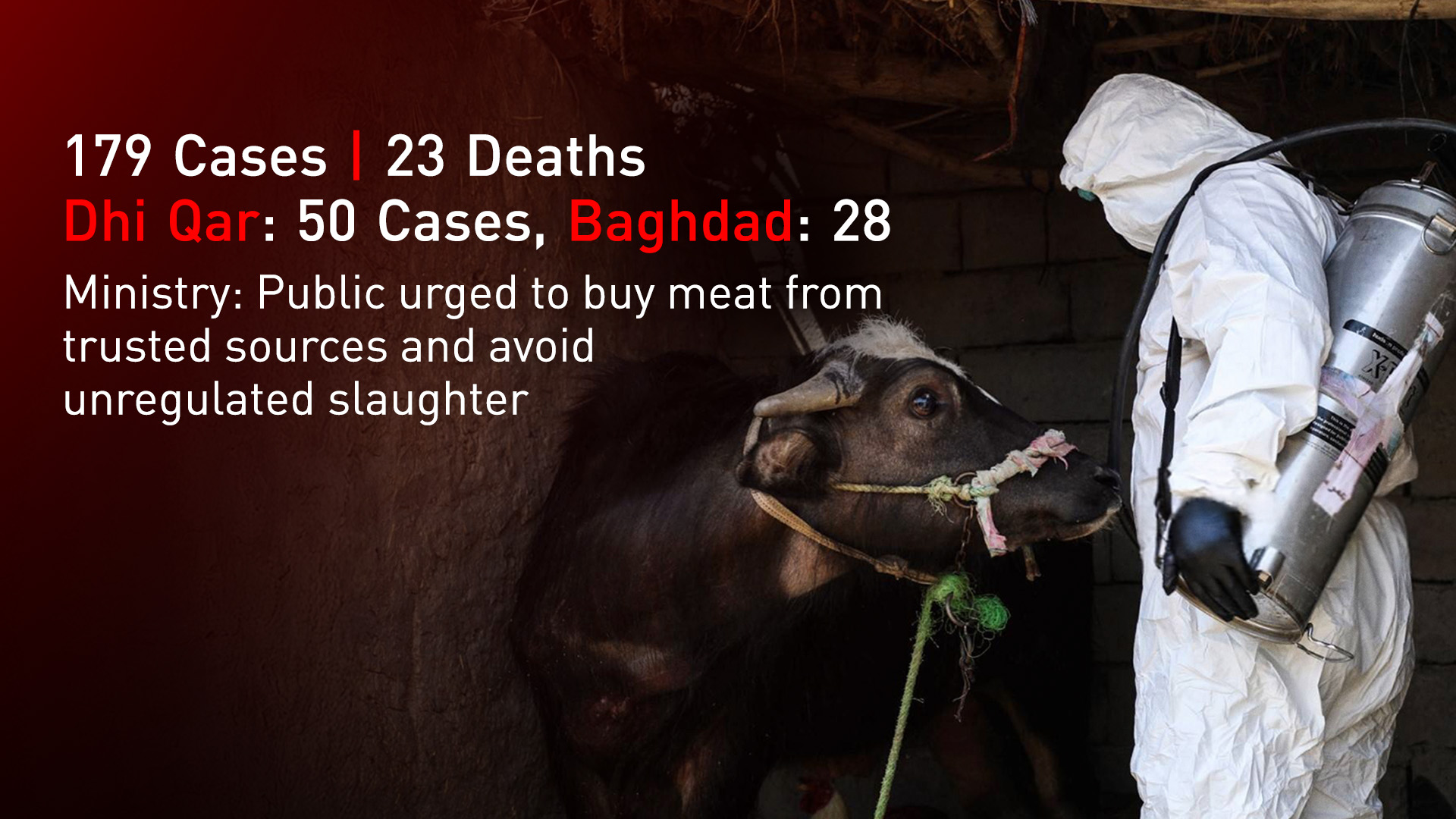Iraq Reports 71% Surge in Hemorrhagic Fever Cases
CCHF cases in Iraq surged by 71% in 2025 to 179, with 23 deaths. Dhi Qar, the worst-hit province, is now under control, officials say. Causes include unsafe meat handling and unregulated slaughter. Authorities urge public caution and enforce new containment measures.

By Kamaran Aziz
ERBIL (Kurdistan 24) — Iraq’s Ministry of Agriculture has announced a significant rise in confirmed cases of Crimean-Congo Hemorrhagic Fever (CCHF), with infections increasing by 71% in 2025, reaching a total of 179 cases, including 23 fatalities. However, officials confirmed that containment efforts have been successful in the southern province of Dhi Qar, the area worst hit by the outbreak.
Dr. Thaer Sabri Hussein, Director of the Epidemiology Department at the Ministry’s Veterinary Directorate, provided detailed figures, stating: “The total number of confirmed cases reached 179, including 23 fatalities.” He noted that Dhi Qar recorded 50 cases and one death, followed by Baghdad with 28 cases and eight deaths.
The provinces with the lowest infection rates—each reporting a single case—were Karbala, Najaf, Anbar, and Salahuddin.
Dr. Hussein confirmed that “the virus has been controlled in Dhi Qar through the provision of anti-tick pesticides,” explaining that a targeted spraying campaign had been launched to disinfect livestock pens and surrounding areas.
Livestock were treated through immersion in a 5% concentration of deltamethrin for 14 days, with the process scheduled to be repeated after a similar interval.
“In case of a detected disease hotspot, a 15-square-kilometer quarantine is imposed, banning animal movement in or out of the area,” he added.
The 71% increase in infections has been attributed to multiple factors.
Dr. Hussein cited the public’s lack of health awareness and non-compliance with prevention guidelines as key contributors. He emphasized that “handling meat infected with ticks, the ritual slaughter of animals during Eid al-Adha, and the spread of unregulated butchering” were primary causes of transmission.
In response, the Ministry of Agriculture is urging the public to purchase meat only from safe, trusted sources and to freeze meat before consumption to eliminate the virus.
Dr. Hussein called for “a ban on animal slaughter inside butcher shops or near residential areas and public roads,” noting that such practices pose a severe public health risk.
Dr. Hussein also highlighted the importance of early detection and cooperation with veterinary clinics, which are providing disease control services either free of charge or at reduced costs. He stated that “strict regulations require livestock slaughter to take place in designated areas during the month of Muharram,” particularly among those preparing food for Ashura mourning gatherings.
To bolster the country’s epidemic response capacity, Iraq has signed new procurement contracts with a Jordanian company to supply cypermethrin, a chemical used for floor disinfection at a dilution of one liter per 2,000 liters of water.
According to Dr. Hussein, Iraq and Jordan have also finalized health protocols and certification frameworks regulating livestock imports.
The Ministry of Agriculture continues to monitor the situation closely and has reaffirmed its commitment to curbing the spread of CCHF through sustained veterinary intervention, public awareness campaigns, and regional cooperation.
Kurdistan 24 will continue to follow the story and provide updates as further information becomes available.